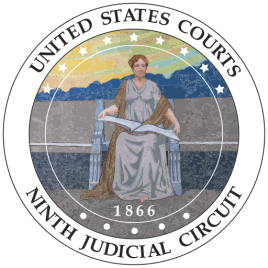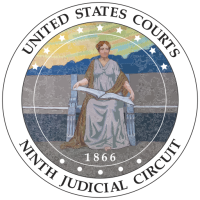Court Upholds DEA’s Refusal To Waive Registration Mandates for Treatment of Patients With Psilocybin

A federal appeals court has denied a petition brought by a medical research institute challenging the DEA’s decision not to exempt the institute’s codirector from registration requirements under the Controlled Substances Act (CSA) while he sought to provide patients with psilocybin, a Schedule I hallucinogenic compound (Advanced Integrative Medical Science Institute, P.L.L.C. v. U.S. Drug Enforcement Administration, No. 22-1568, 2025 U.S. App. LEXIS 3365 (9th Cir. Feb. 13, 2025)).
Since 2021, the Advanced Integrative Medical Science Institute (AIMS) and Dr. Sunil Aggarwal have sought approval from the DEA to provide the physician’s patients with psilocybin, the psychedelic compound found in so-called magic mushrooms.
AIMS first asked the DEA for guidance on how the agency would apply the Right To Try Act (RTT Act), a 2018 amendment to the Federal Food, Drug, and Cosmetic Act (FD&C Act) that makes it easier for patients with life-threatening diseases to gain access to investigational drugs outside the clinical trial process once the patients have exhausted approved treatment options.
In its response to AIMS’s inquiry, the DEA stated that the RTT Act does not waive any of the CSA’s requirements. The institute then petitioned the U.S. Court of Appeals for the Ninth Circuit to review the agency’s decision. The appeals court dismissed the petition, concluding that the response to AIMS provided by the DEA did not constitute a final agency action that the court could review.
AIMS then asked the DEA to exempt Aggarwal from the CSA’s registration requirements, either by finding that his proposed use of psilocybin was not covered by the CSA’s registration requirements or by issuing a rulemaking waiving the registration requirement. The agency declined to take either of the steps that AIMS suggested. The institute petitioned the appeals court for review of the DEA’s determinations.
In its Feb. 13 opinion, the Ninth Circuit first found that the DEA’s latest decisions constituted final agency action and that as a result the court had jurisdiction to review those decisions.
No Registration Requirement Waiver
The institute first claimed that the DEA’s denial of its request to exempt Aggarwal from the CSA’s registration requirements was arbitrary and capricious. The court disagreed, saying that the agency had “articulated several reasons for its denial of AIMS’s rulemaking request.”
In deciding that the physician must register before providing psilocybin to his patients, the DEA had rejected the institute’s assertion that the RTT Act waived the CSA’s registration requirements.
AIMS had pointed to a section of the CSA saying that the statute was not to be construed as modifying, repealing or superseding provisions of the FD&C Act, which the institute noted contained the RTT Act (21 U.S.C. §902).
The court said that this assertion misunderstood the relationship between the RTT Act, the FD&C Act and the CSA.
“The RTT Act provides that ‘eligible investigational drugs provided to eligible patients …. are exempt from’ certain statutory and regulatory provisions concerning the labeling, marketing, approval and clinical trials of drugs,” the court explained (21 U.S.C. §360bbb-0a(b)). “The CSA and its related regulations are not included in the RTT Act’s enumerated exemptions; the RTT does mention the CSA at all.”
“Although the RTT Act does not require FDA approval for eligible patients to access eligible investigative drugs,” the court continued, “it does not exempt such drugs from the FDA’s attorney-general-designated oversight pursuant to the CSA. So DEA’s continued enforcement of the CSA’s registration requirements does not affect, modify, repeal or supersede the [FD&C Act] as amended by the RTT Act.”
In telling the institute that the RTT Act did not give the DEA authority to waive CSA requirements, “DEA provided a clear and accurate explanation of the interaction of the RTT Act and the CSA as relevant to AIMS’s request,” the court said.
Rulemaking Request
The DEA had also told AIMS that it was “unable to fully assess” the institute’s request for a rulemaking waiving the registration requirement because AIMS “did not provide DEA with the proposed text, or even the scope, of the regulation [the institute] purportedly seeks.”
Although DEA regulations do not generally require petitioners to include the proposed text of regulations they desire, the Ninth Circuit said, “AIMS’s letter to the DEA was unclear as to the specific exemption it wanted,” and “DEA’s assertion that the vagueness of AIMS’s request affected the agency’s ability to determine whether to grant it was not unreasonable.”
The DEA had told the institute that Congress had placed psilocybin in Schedule I and that Aggarwal’s “proposal to abandon altogether [the CSA’s] findings and limitations” was “too great a departure from current law and inconsistent with public health and safety.”
The court said that the agency’s reasoning “meets the low burden for denials of rulemaking petitions, especially given the vague content of AMIS’s petition.”
Moreover, it said, AIMS “did not demonstrate in its letter to the agency how its proposed use of psilocybin was consistent with public health and safety. … Given AIMS’s threadbare proposal, DEA’s substantive response was not arbitrary and capricious.”
The appeals court panel also disagreed with AIMS’s assertion that the DEA had failed to follow its own precedent or give a sufficient explanation for failing to do so.
In particular, the court rejected a comparison that AIMS made involving reverse distributors — firms that take possession of controlled substances from DEA-registered parties and then return the substances to manufacturers or dispose of them.
The institute had asserted that the agency had let reverse distributors handle controlled substances without registration by entering into memoranda of understanding (MOUs) with the reverse distributors rather than requiring them to register. Because Aggarwal’s proposed use of a controlled substance to treat terminally ill patients under the RTT Act was, like reverse distribution, not an “essentially link in the closed distribution system” of controlled substances under the CSA, AIMS argued, the DEA could “impose whatever diversion controls it deems necessary through an MOU with Dr. Aggarwal” rather than requiring him to register.
Rejecting the institute’s assertion, the court said that AIMS “points to no example of DEA having granted an exemption from registration — or using MOUs as substitute for registration — for activity similar to that which it proposes,” the court said.
“In sum,” the appeals court panel concluded, “DEA's response explained that ‘practitioners who seek to dispense or possess Schedule I controlled substances must be properly registered as an approved researcher in accordance with the CSA and its implementing regulations.’ The agency also ably explained why it was declining to exempt AIMS from the registration requirement. Having considered and discussed the relevant factors underlying its decision, DEA provided a path to its decision that can reasonably be discerned. The agency was not required to do more.”



